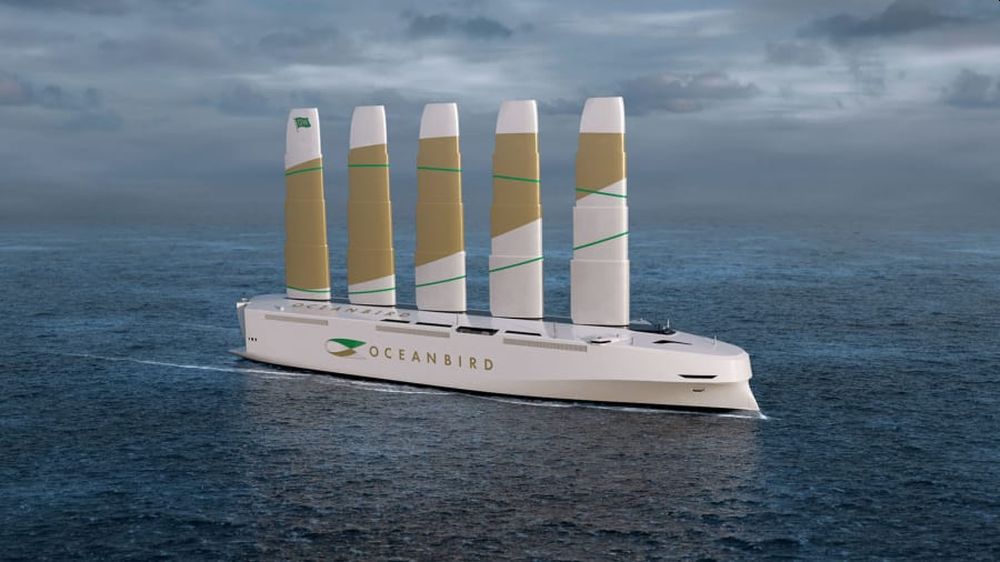World’s Largest Wind-Powered Vessel Oceanbird Could Reduce Emissions to 90 Percent
Renewable energy resources have been high in demand, as the world races to reduce carbon emissions in order to prevent the rise of global temperatures. While ships were once the primary mode of international commerce, they have been less popular in contemporary times owing to their excessive fuel consumption and emissions.
However, a Swedish shipbuilder, Wallenius Marine, has given a high-tech update to ships in order to cut off emissions. Oceanbird is a proposed transoceanic car carrier, which will be mostly a wind-powered vessel and could reduce carbon emissions by a claimed 90 percent compared to a conventional ship. Oceanbird is a new concept, which makes it possible to utilize the wind to power the largest ocean-going vessels, huge ships carrying heavy cargo over long distances for long periods of time.
The innovative design of the ships uses five telescopic wing-shaped elements instead of canvas-sails, standing at 260 feet above the deck. They can rotate 360 degrees without touching each other, or retract to 195 feet to let the ship to pass under bridges and withstand rough weather.

Image: Wallenius Marine
The 35,000-ton ship has the capacity for 7,000 vehicles. The 650-feet-long vessel is a similar size to conventional car carriers, but it will look fundamentally different. The sails, which will be made of steel and composite materials, are huge in size to generate enough propulsive power for the ship to operate.
This design is born out of the need to reduce carbon emissions in the shipping industry. According to the International Maritime Organization (IMO) – a United Nations agency that regulates shipping, shipping is responsible for 2.89 percent of global manmade greenhouse gas emissions in 2018. Wind-powered vessel Oceanbird is designed to exceed these targets; it will emit 90 percent less CO2 than conventional car carriers. However, it will still rely on engines for maneuvering in and out of ports, and for emergencies.
This innovative use of wind energy through the ship’s sails will help the shipping industry to reduce its carbon emissions and inspire other major polluters to find such ways to make a considerable difference.
Via: Green Car Reports


